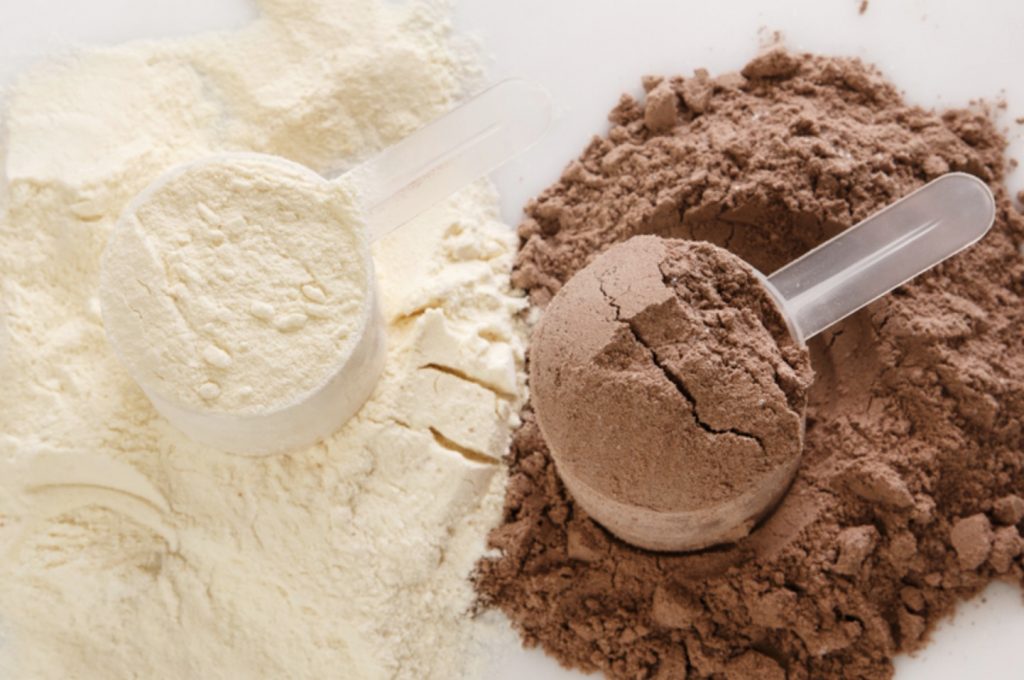
Protein powders are very popular among fitness enthusiasts and health-conscious people looking to strengthen and build muscle. Also, they are in great demand among those who are interested in adding a healthy source of protein to their diet.
There are many different types of protein powder made from numerous sources. And since there are too many options available, it can be challenging and tricky to identify which will offer the best results.
For a little help, below are seven types of protein powder you should try out.
Pea Protein
Protein is made up of amino acids, and protein extracted from yellow peas is digestible. Pea protein powder is particularly popular among people with sensitivities, allergies to eggs and dairy, or vegetarians.
It is often used to boost the protein content of shakes and smoothies and is an excellent source of iron. What’s more, pea protein can aid heart health, weight loss, and muscle growth.
Nutritional facts can differ between brands. But, in general, 20 grams or two scoops of pea protein powder contains:
- 5 mg of iron
- 230 mg of sodium
- 1.5 g of total fat
- 1 g of fiber
- 1 g of carbohydrates
- 1g of protein
- 80 calories
On top of that, pea protein contains all of the essential amino acids you need to get from food and is a terrific source of branched-chain amino acids (BCAA), which promotes heart health and healthy blood flow. It’s also a great source of valine, isoleucine, and leucine, promoting muscle growth.
Pea protein powder is dairy-free, gluten-free, and naturally vegan. Plus, it doesn’t contain any of the following allergens:
- Soy
- Wheat
- Cow’s milk
- Shellfish
- Fish
- Eggs
- Tree nuts
- Peanuts
Whey Protein
This type of protein comes from milk. In particular, it’s the liquid that breaks up the curds during the craft of making cheese. Whey is very high in protein and other nutrients to help you lose weight, gain muscle, and increase strength. However, it also contains lactose that many people have difficulty digesting.
Note that whey protein on its own doesn’t taste good. That’s why it is typically flavored. Strawberry, vanilla, and chocolate-flavored powders are all the rage today.
Primarily, there are three types of whey protein, and these are:
- Whey protein hydrolysate. It’s thought to be the easiest-to-digest form of whey protein.
- Whey protein isolate. It typically contains 90% of protein, less fat, and lactose.
- Whey protein concentrate. It has the best flavor and contains some fat and lactose.
Egg Protein
Eggs are the best source of high-grade protein and are one of the best foods for helping you stay full for a longer period. Note that egg protein powders are usually made from egg whites. While the protein quality remains outstanding, you might experience decreasing appetite due to removed high-fat yolks.
Moreover, eggs provide all the essential amino acids that the human body cannot make. Additionally, egg-white protein powder is the perfect option for people with dairy allergies.
Egg protein also protects your muscles and makes sure that they can grow back without the risk of injuries.
Casein Protein
Casein protein is derived from milk like whey. Whey contains 20% of the milk protein, while casein contains 80% of the milk protein. The difference between the two is that casein is digested slowly, and whey is digested quickly.
What’s more, casein protein contains many different bioactive compounds and unique proteins, some of which have nutritional benefits, such as:
- Muscle growth
- Reduced triglyceride levels
- Immune and antibacterial benefits
- Antioxidant effects
- Fat loss
It is best taken before bed since it’s a slow-digesting dairy protein.
Mixed Plant Proteins
Some products contain a combination of different plant sources to inject your body with all the nine essential amino acids. The following proteins are often blended:
- Quinoa
- Artichoke
- Flax seeds
- Chia seeds
- Alfalfa
- Hemp
- Pea
- Brown rice
Because plant proteins typically have higher fiber content, they are digested slower compared to animal proteins. While this might not instigate a concern or worry for many people, plant proteins can restrict or cap the amino acids your body can utilize right away after training.
Additionally, plant-based protein powder is also beneficial for taking some pounds off. Also, you can boost your daily nutrient profile and cut down your caloric intake by using plant proteins instead of animal-based proteins.
Final Thoughts
Before taking protein powder, you should make sure to consult your doctor first, especially if you take prescriptions. Doing this helps you avoid unwanted drug reactions. Moreover, to save money on medicine while including protein powders on your regimen, you can check out discount coupons, such as BuzzRx’s most common coupons.
Even though all protein powders impart a concentrated source of protein, some types might be more potent at giving your body what it genuinely needs. But rest assured that research has always confirmed the ability of whey protein to promote muscle recovery and mass.


















Follow Us